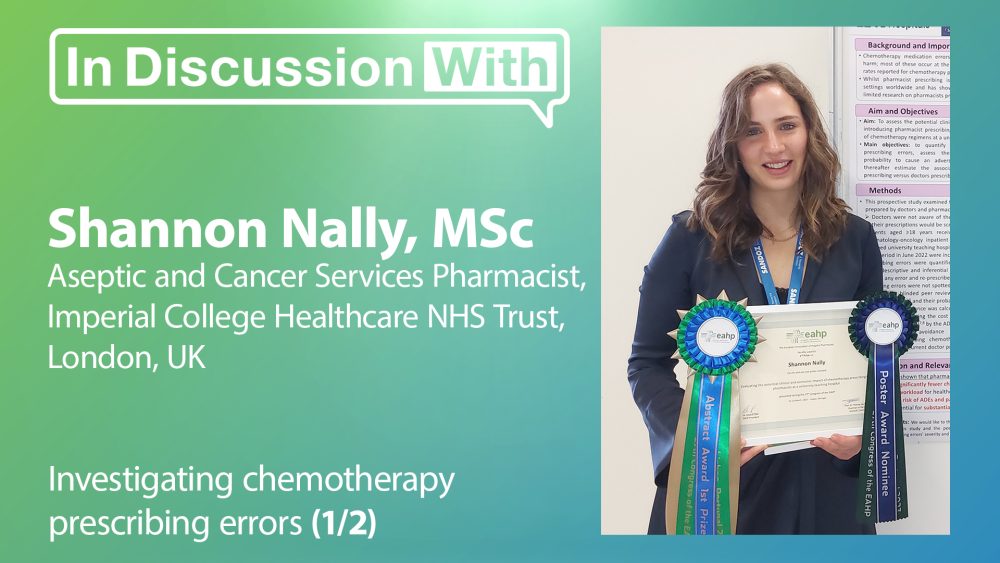Advertisment
Investigating chemotherapy prescribing errors

Shannon Nally is a pharmacist with a strong background in aseptic pharmacy work and oncology. Whilst studying for a master’s degree at University College Cork (UCC) she undertook a project at University Hospital Limerick which compared prescribing of chemotherapy by doctors and pharmacists.
Awareness of the growing incidence of cancers combined with high rates of prescribing errors with chemotherapy led researchers at UCC to ask whether prescribing of chemotherapy by pharmacists might have beneficial clinical and economic impacts. Other important driving factors included the “increasingly multi-morbid, aging population [and] a paucity of doctors in our healthcare system”, says Ms Nally. Chemotherapy prescribing errors represent a potentially serious risk for patients – the consequences of either underdoses or overdoses can be serious. Moreover, the workload in oncology clinics is making them “increasingly pressurised” and “we need to think of innovative ways to help reduce this pressure while maintaining and enhancing the patient experience”, she adds.
Ms Nally undertook a comparative, prospective study that evaluated the clinical and economic impact that chemotherapy prescribing by pharmacists could have at a university teaching hospital. In order to do this, the same set of 155 prescriptions was prepared separately by doctors and pharmacists and then compared and presented to a panel of peer reviewers. “[The members of the] peer review panel were all independent of the study – none of them took part in our study. Three of them were consultants based in other hospitals [and] three of them were specialised pharmacists who did not take part in the study”, she explains. Prescribing errors were categorised according to the Pharmaceutical Care Network Europe (PCNE) classification scheme for drug related problems (DRPs). The panel of peer reviewers determined the severity ratings for each error and the probability that it would have caused an adverse drug event (ADE) if it had reached the patient. “It’s really important to bear in mind as well that the doctors did not know the study was taking place and the pharmacists were blinded to what the doctors prescribed”, she says. The prescriptions involved more than1400 medicines, with more or less equal numbers of chemotherapy drugs and supportive therapy. The indications included breast and colon cancers as well as haematological malignancies. The majority (95 percent) of the prescriptions were electronic and only five percent were handwritten. “Of all the errors that occurred a little over half of them were from the wrong dose being prescribed…. This is where it gets interesting – so a total of 128 prescribing errors were identified from the 310 prescriptions. Of these, 105 (82 percent) were from doctor-prescribed chemotherapy and 23 (18% percent) were from pharmacist-prescribed chemotherapy – and for this figure we got a p-value of less than 0.05, …. showing that our results were significant”, say Ms Nally. In addition, 17.6 percent of doctors’ prescribing errors were classified as having a high probability of causing an ADE compared with zero percent for pharmacists’ prescribing errors. “Assuming then that the errors were not spotted and that they all reached the patients we derived a net cost-benefit of utilising a pharmacist prescribing service and the savings were over 1.2 million Euro on an annual basis”, she says.
Shannon Nally is now Aseptic and Cancer Services Pharmacist at Imperial College Healthcare NHS Trust.
The poster: Evaluating the potential clinical and economic impact of chemotherapy prescribing by pharmacists at a university teaching hospital was selected as Best Poster at the EAHP Congress held in Lisbon, Portugal 22-24th March 2023.
Read and watch the full series on our website or on YouTube.





